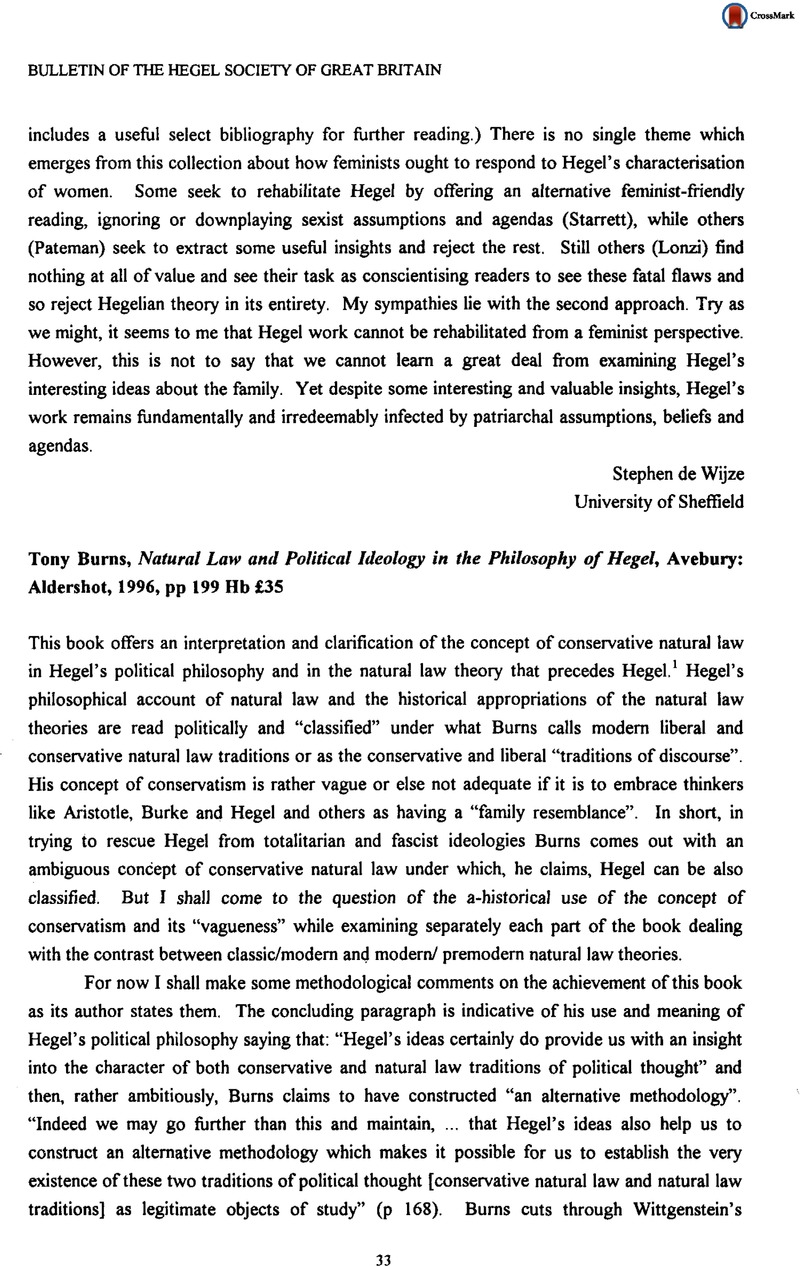No CrossRef data available.
Article contents
Tony Burns, Natural Law and Political Ideology in the Philosophy of Hegel, Avebury: Aldershot, 1996, pp 199 Hb £35
Review products
Published online by Cambridge University Press: 23 June 2015
Abstract

- Type
- Reviews
- Information
- Bulletin of the Hegel Society of Great Britain , Volume 18 , Issue 2: number 36 , Autumn/Winter 1997 , pp. 33 - 38
- Copyright
- Copyright © The Hegel Society of Great Britain 1997
References
1 See also Burns, A (1995) “Hegel and natural law theory” Politics, vol 15 no 1 CrossRefGoogle Scholar.
2 On the relation between Hegel and Aristotle see also Ioannidou, A (1996a) The Concept of the Division of Labour as the Link Between Smith's and Hegel's Social Theory, unpublished PhD, Warwick University England, chapter VIICrossRefGoogle Scholar.
3 For a short review of these critical readings see Ioannidou (1996a) chapter IX.
4 The question of ethical life was the subject of conceptual discussion not only in the NLE but also in the early phenomenologies of spirit, the Jena writings, as well as in his historical writings although from a different standpoint. See Rose, G (1981) Hegel Contra Sociology, Cambridge: Athlone pp 56–72 Google Scholar, Dickey, L (1987) Hegel Religion Economics and the Politics of Spirit 1770-1807, Cambridge: Cambridge University Press, A Ioannidou (1996a) chapters VI, IXCrossRefGoogle Scholar.
5 The latter is subject of discussion in various paragraphs where Hegel discusses the difference between a philosophical theory of the nation state and a legal one. See mainly PR par 258 [A] Ioannidou (1991 June) “Hegel and Political Economy” unpublished.
6 Ioannidou (1996b) “The Politics of the Division of Labour: Hegel and Smith on Civil Society” forthcoming.
7 On the contrast between these “models” of conceptualising modern society see Ioannidou (1996a) chapter IX.


